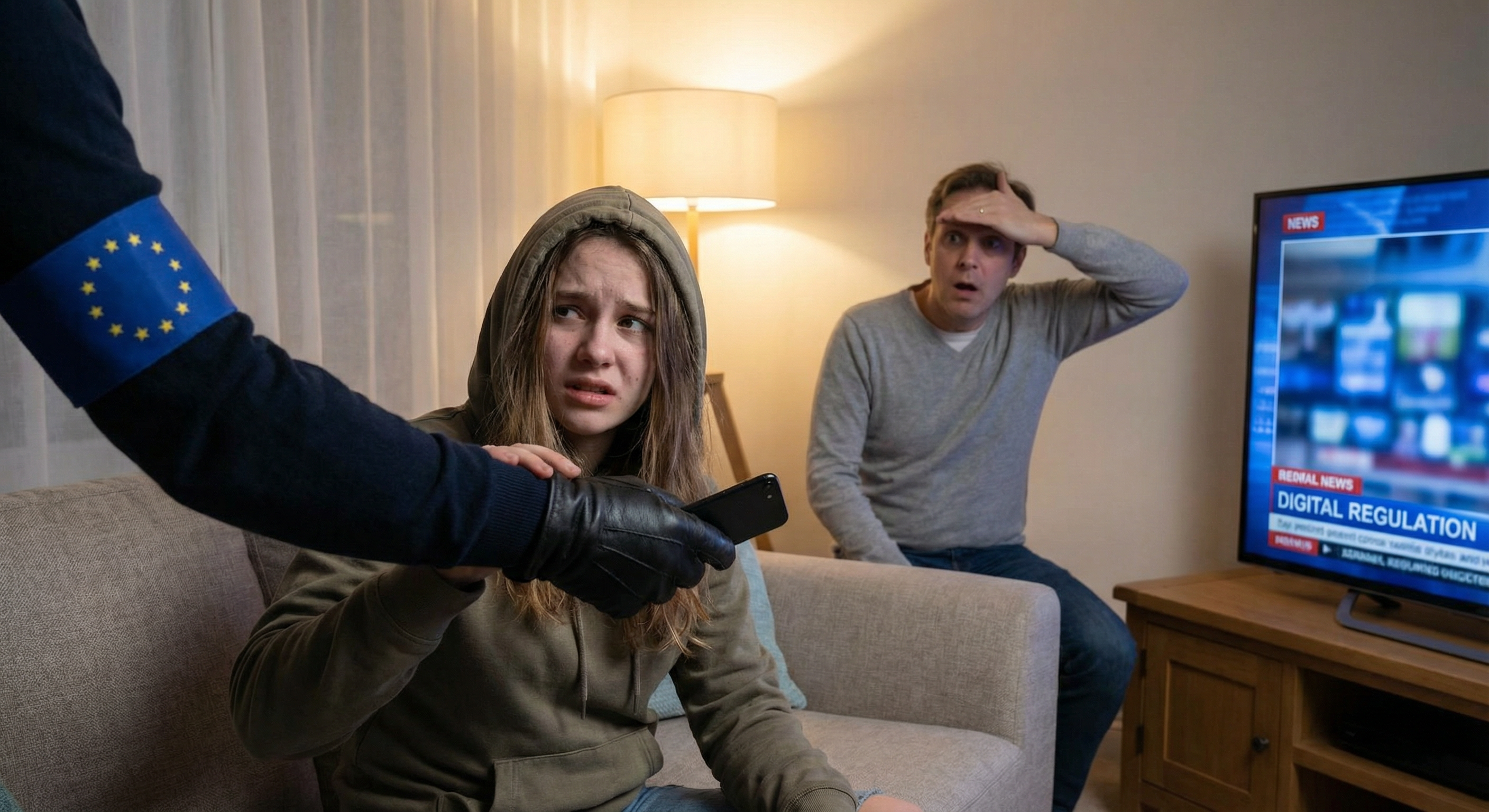Former MEP Patrick Breyer: Danish Minister Uses “Blatant Lie” to Blackmail EU into “Chat Control“ Mass Surveillance Deal
Digital freedom fighter exposes disinformation campaign to break resistance to “Chat Control 2.0,” highlights hypocritical exemption for police and military as EU Council vote hangs in the balance.
In a desperate maneuver to force through the controversial “Chat Control 2.0” regulation (officially: Child Sexual Abuse Regulation, CSAR), Danish Minister of Justice Peter Hummelgaard is using demonstrably false claims to blackmail reluctant EU interior ministers, warns jurist and former Member of the European Parliament Dr. Patrick Breyer who co-negotiated the EU Parliament’s critical position on the proposal.
While the stated aim is to detect child sexual abuse material (CSAM), the proposal would compel services used by hundreds of millions — WhatsApp, Signal, Telegram, iMessage, and major email providers — to scan every message, including personal photos, and videos. Experts warn this means indiscriminate, real-time mass surveillance and the effective end of secure end-to-end encryption.
The Danish minister, chairing the rotating Council Presidency, claims the European Parliament will refuse to extend the current, expiring voluntary scanning regime unless the EU Council first agrees to the new mandate for mandatory, indiscriminate scanning of all private communications.
“This is a blatant lie designed to manufacture a crisis,” states Dr. Breyer, a long-time digital freedom fighter. “There is no such decision by the European Parliament. There has not even been a discussion on this issue. The Commission has not yet proposed to extend the current legislation, and the European Parliament has not yet appointed Rapporteurs to discuss it. We are witnessing a shameless disinformation campaign to force an unprecedented mass scanning law upon 450 million Europeans. I call on EU governments, and particularly the German government, not to fall for this blatant manipulation. To sacrifice the fundamental right to digital privacy and secure encryption based on a fabrication would be a catastrophic failure of political and moral leadership.”
Fact vs. Fiction: Debunking the Myth of “Targeted” Scanning
Proponents, including the Danish minister, claim the proposal is targeted, asserting that only specific providers can be ordered to scan as a “last resort” and only for images, videos, and URLs. “This is dangerously misleading,” Dr. Breyer warns. “The reality is far more invasive:”
- “Last resort” is an Illusion: The conditions for issuing a scanning order are so broad that virtually every major communication service will be forced to scan all of their users’ messages.
- Intransparent, High-Error Technology: The scanning technology is notoriously unreliable, with false positive rates estimated between 50-75%. This means hundreds of thosands of innocent Europeans—families sharing vacation photos, partners sexting—will be wrongly flagged by faulty algorithms and black box AI systems. Hundreds of scientists recently issued a warning.
- Entire Private Chats Exposed: In the event of a flagged item, it is not just the suspected image or URL that is reported. The regulation mandates that the entire chat conversation (“content data related to the reported potential online child sexual abuse”) is forwarded to a new EU authority and law enforcement.
Hypocrisy: Officials Exempt Themselves from Their Own Surveillance State
Dr. Breyer also points to a damning admission of guilt within the Danish compromise proposal itself: it explicitly exempts the chats of police officers, soldiers, and intelligence officers from scanning (Article 7).
“This cynical exemption proves they know exactly how unreliable and dangerous the snooping algorithms are,” Breyer says. “If state communications deserve confidentiality, so do citizens’, businesses’ and survivors’ — who rely on secure channels for support and therapy. It is an outrageous betrayal that the ministers imposing this surveillance do not want to suffer the consequences of the digital destruction they are creating.”
State of Play: A Divided EU Council on a Knife’s Edge
The EU Council is deeply divided. Since 2022, a blocking minority has prevented the proposal’s adoption—but that resistance is now at risk. The outcome of the October 14 vote hinges on a handful of undecided governments, including Germany and Italy. The current breakdown is as follows (more details here):
🟥 IN FAVOUR: A strong bloc continues to push for the regulation, including Bulgaria, Croatia, Cyprus, Denmark, France, Hungary, Ireland, Lithuania, Malta, Portugal, Spain, and Sweden.
🟩 OPPOSED: A significant group of Member States remains opposed on grounds of fundamental rights, privacy, and technical feasibility: Austria, Czech Republic, Estonia, Finland, Luxembourg, Netherlands, Poland, and Slovakia.
🟦 UNCERTAIN / SWING VOTES: Germany (split coalition; may seek weak ‘compromise’), Belgium (support unclear after rejected alternative), Italy (new doubts re AI checks/scope), Latvia, Romania, Greece, Slovenia
As a jurist and activist, Patrick Breyer has long argued that the proposal is both ineffective and a violation of fundamental rights:
“This is a Big Brother attack on our private messages—like the post office opening and scanning every letter,” says Breyer. “It won’t stop criminals, but it will flood police with false reports and criminalize young people for consensual sexting. The fate of digital privacy in Europe now rests with just a few undecided governments.”
Call to Action
If passed, Europe would become the first liberal democracy to mandate mass scanning of its citizens’ private communications — turning personal devices into surveillance tools.
“The future of digital privacy in Europe is being decided now. Call your competent ministries — especially interior and justice — and demand they reject this mass‑surveillance law. Don’t wait. Your privacy is on the line.”
Find ministry contact details for every EU country: https://www.fightchatcontrol.eu

